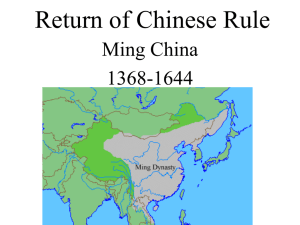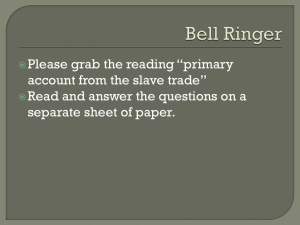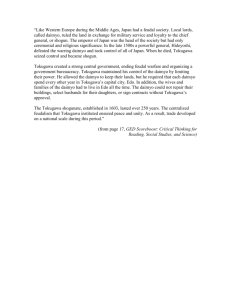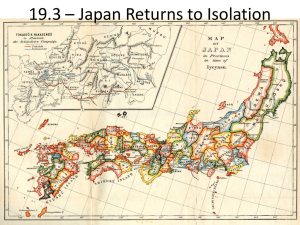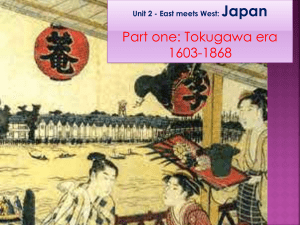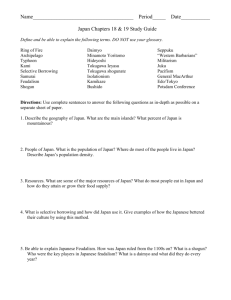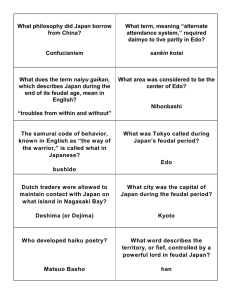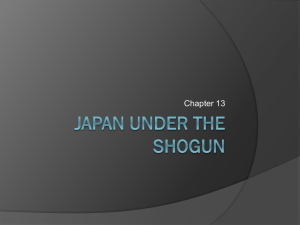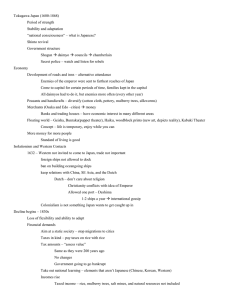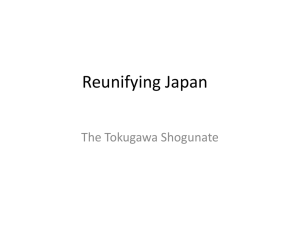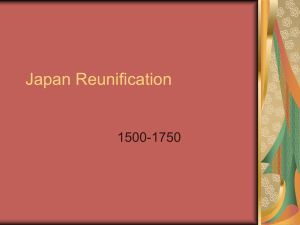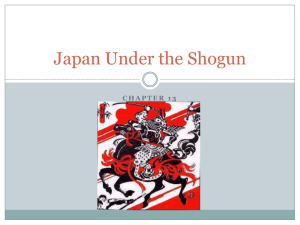Japan Returns to Isolation
advertisement
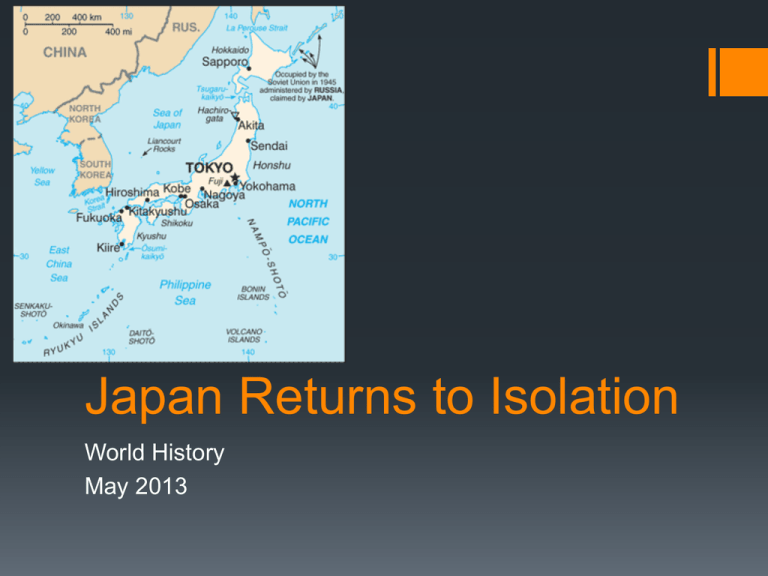
Japan Returns to Isolation World History May 2013 New Feudalism Under Strong Leaders Civil War shattered Feudal system (1467) Centralized rule ended Local lords began to rule and a violent era of disorder followed “Warring States” Period DAIMYO: Powerful samurai that took control of old feudal estates Offered peasants protection in return for loyalty Built castles, established armies Often fought each other for territory Tokugawa Shogunate Unites Japan Shogun: a hereditary military dictator of Japan, from 1192-1867 Defeated his rivals at the BATTLE OF SEKIGAHARA Impressive victory… daimyo across Japan now respected him Moved capital to Edo All daimyo had to live there every other year… if they wanted to leave they had to keep their family in Edo as hostages! (Alternate Attendance Policy) Rule of Law overcame Rule of the Sword Life in Tokugawa Japan Very structured Ruler = shogun, military commander Peasants = 4/5 population Spiritual Influences Confucian values influenced society EXCEPT… according to Confucius the ideal society depends on agriculture and farmers should be respected… NOT SO in Tokugawa (farmers pay heavy taxes and have a harder life) Shift! Rural Urban society Edo (capital) grows a population over 1 million More employment opportunities for women However, most women still lived sheltered & restricted lives, caring for children and obeying her husband Culture Traditional entertainment continued (ceremonial noh dramas)– see an example of this here: https://www.youtube.com/watch?v=o--VbWf6M0c Haiku: 5-7-5-syllable, 3-verse poetry Example: On a journey, ailing– My dreams roam about Over a withered moor. Matsuo Basho Pop Quiz How would the “alternate attendance policy” restrict the daimyo? How is Matsuo Basho’s haiku a poem about death?
